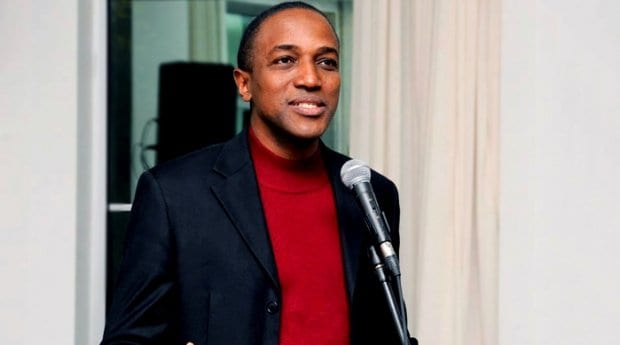Jamaican-Canadian activist Maurice Tomlinson has filed a new challenge against Jamaica’s anti-buggery law, and is calling on the diaspora community to support the cause by calling friends and family back home and telling the Jamaican High Commission in Canada that they support gay rights. The trial will begin at the Jamaican Constitutional Court Feb 23, 2016.
In Jamaica, men convicted of having sex with men can be sentenced to upward of 10 years in prison and hard labour. Under recent changes to the law, those convicted must also register as sex offenders, notify their neighbours and carry a pass at all times. Failure to carry the pass can result in another year in prison and a fine equivalent to CDN$11,450.
LGBT people routinely face violence on the island, which has been labelled the most homophobic place on Earth by Time magazine.
In 2011, Jamaican Prime Minister Portia Simpson-Miller pledged to review the buggery law. But when it became clear that Simpson-Miller wasn’t following up on her campaign promise, Tomlinson decided to take the matter back to court.
“It was clear to me and the people supporting me that the only way to get this law addressed is through the courts. There’s no realistic prospect that we’ll have politicians take this on,” he says.
The law exposes LGBT people to violence and extortion, and makes it difficult to do HIV outreach to Jamaica’s gay men — a population which Tomlinson says has one of the highest HIV-prevalence rates in the world.
Tomlinson is one of the region’s most visible LGBT activists, and as a lawyer, he pressed the original complaint against the government in 2012. That complaint was withdrawn last year after the plaintiff received death threats. As a precaution, Tomlinson travels with a security detail and takes several security measures whenever he’s in Jamaica.
The challenge to the buggery law — a law that has been in place since colonial times — comes under Jamaica’s 2011 Charter of Rights, which protects freedom of person, privacy and non-discrimination. But because Jamaica’s constitution limits challenges against laws written in the colonial era, Tomlinson is arguing the 2012 changes to the law open it up to a charter challenge.
Jamaica is one of 11 Western Hemisphere countries — all former British colonies — which criminalize homosexuality. Some observers think that a successful case in Jamaica may help set a precedent for striking down buggery laws across the Caribbean.
So far, public reaction in Jamaica has been mixed. The Jamaica Gleaner published an editorial in support of the case, but other outlets have given space to anti-gay voices supporting the buggery law. Some argue that striking down the buggery law will make also same-sex marriage legal, which Tomlinson says is not the case because the Jamaican constitution explicitly bans it.
Tomlinson hopes members of the Jamaican diaspora will help build public support for LGBT rights.
“What we need is support, especially people from the diaspora speaking to family members in Jamaica, to share why this law must go,” he says. “If you’re LGBTI in Canada, to be out to your family if it’s safe to do so, because the more people know, the more people will support us.”
Whatever the outcome, the case will likely be appealed to the Jamaican Court of Appeal. From there, appeals go to the Privy Council in London, or, if parliament passes the proposed law for its establishment, the new Caribbean Court of Justice (CCJ) in Trinidad.
This case is just one of several LGBT rights cases Tomlinson is pursuing in the Caribbean. Also in February, Tomlinson will be in court on a discrimination complaint about a television station’s refusal to air a pro-LGBT rights commercial he produced. Tomlinson is also awaiting judgement from the CCJ in a case he filed this year, challenging laws in Trinidad and Tobago and Belize that ban homosexuals from entering the country.
Editor’s note: A previous version of this story incorrectly attributed an editorial to The Jamaican Observer. The editorial is from The Jamaican Gleaner.


 Why you can trust Xtra
Why you can trust Xtra


